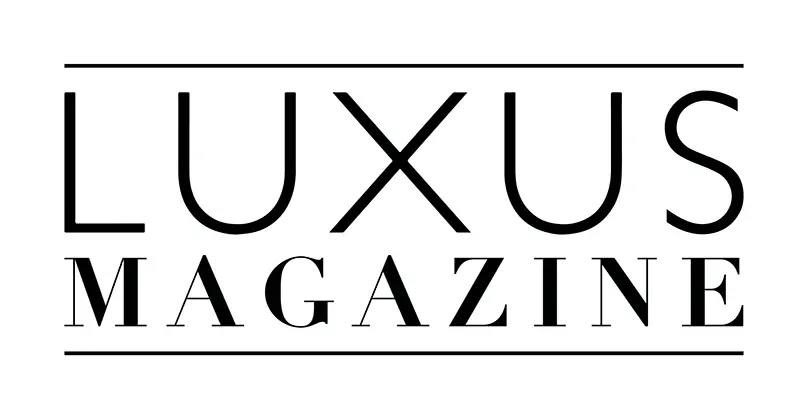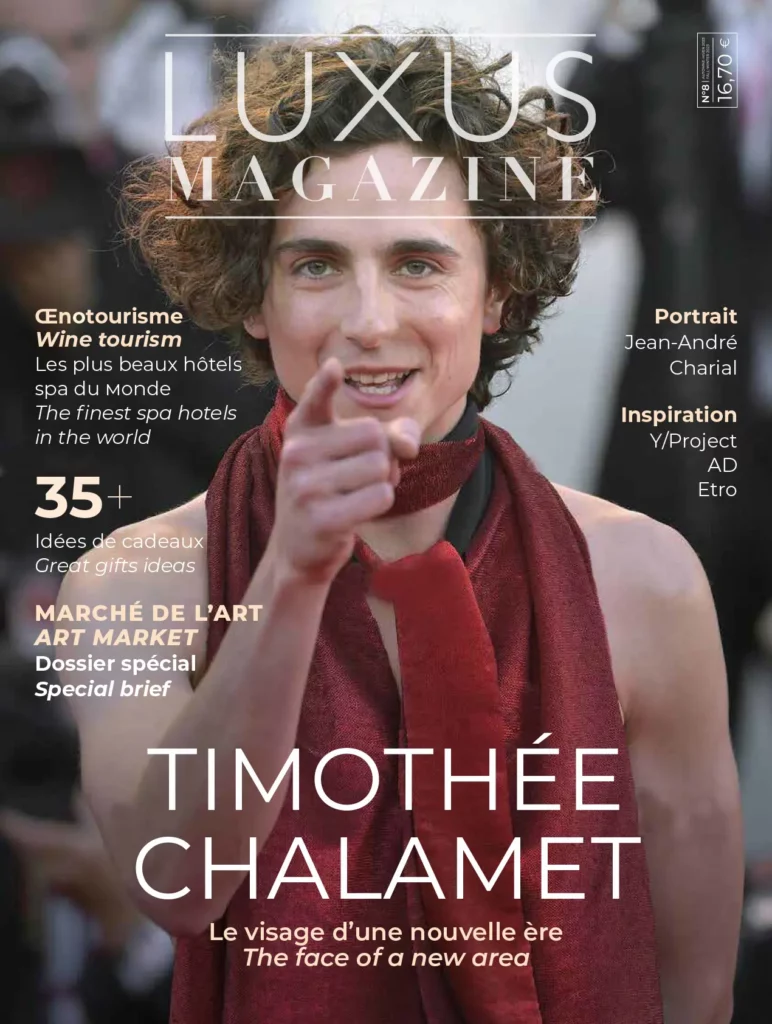Ruben Östlund: portrait of the President of the Jury of the 76th Cannes Film Festival

Twice Palme d’Or at Cannes in only six feature films! The Swedish director has something to intrigue us or make us think. At only 48 years old, he has left his mark with his incisive look and corrosive humor on the small cowardice of our contemporary world. The world of luxury inspires these two golden awards – the art market for the first and the fashion influence for the second – we could not miss it.
Last year – five years after receiving a Palme d’Or at Cannes for his film The Square (2017) – Ruben Östlund won his second Palme d’Or for his sixth film Sans Filtre/Triangle of Sadness (2022).
A first in the history of the festival, the grand prize winner is the one who decides his successor as President of the jury this year.
Two Palmes d’Or… in a row
Don’t be fooled by his friendly Club Med GO look; Ruben Östlund is a born provocateur – like a wild Monty Python – used to going down snowy slopes… and false pretenses.
Don’t talk to him about the “Swedish model,” his native country. The (lost) confidence of Nordic societies is the favorite subject of his first films – in the manner of an American dream blown up by Denys Arcand, Ken Loach, Oliver Stone, or Michael Moore.
Ruben has been a regular at the festival since Happy Sweden, his second film, was selected in 2008 in the Un Certain Regard category. He will continue to do so in 2011 with his film Play, presented in the Directors’ Fortnight, and with his fourth film Force Majeure/Snow Therapy, again in the Un Certain Regard category.

When he returned to the Cannes Film Festival two years later, it was to enter the official selection in extremis, winning his first Palme d’Or with a black comedy: The Square. The story of Christian (Claes Bang, masterful), a divorced father and curator of a contemporary art museum preparing a new exhibition entitled The Square. The Square, therefore (but also the “madman”), named after a work of art described in the film by the latter as “a sanctuary of trust and kindness where we all have the same rights and duties.”
However, pickpockets’ theft of his wallet and mobile phone will shatter the great principles of the conservatory above (ethics, equality, and respect) in favor of a desire for revenge, almost sadistic.
In the process, the film ridicules an art world that has become a mere medium of communication, reaching its climax under the gold of a gala dinner with the memorable performance of a man-chimp, played by Terry Notary.

In 2022, he returned with Sans Filtre/Triangle of Sadness and won his second Palme d’Or. While the French version of the title refers to the attention of society and social networks, Triangle of Sadness refers to the beauty industry. The title refers to the space between the eyebrows where life’s difficulties manifest themselves as wrinkles. In other words, you can’t escape them if you don’t have the money, the power, and the privilege to reduce them with a quick intervention.
With this film, the director wanted to put forward a story “where appearance is capital and beauty is currency.” It can be seen as a continuation of The Square, as it once again beats up the principle of equality, but this time in the very closed club of 0.001% of the planet.

The film follows the adventures of Carl and Yaya (Harris Dickinson and the late Charlbi Dean), two of the world’s highest-paid models and fashion influencers.
Carl, struggling with his girlfriend’s financial success, agrees to accompany her on an ultra-luxury yacht – The Christina O – as part of a social networking promotion. Piloted by a Marxist captain (Woody Harrelson, imperial), the boat is populated by dedicated staff and socialite passengers… enriched in armaments and chemical fertilizers. The whole hierarchy is shattered when the ship sinks. On a deserted island, Abigail, a Filipino cleaning lady (Dolly De Leon), thanks to her knowledge of fire and fishing, takes power over the survivors and… reproduces in her turn the model she was castigating a few hours earlier.
The film was, however, marked by the untimely death of Charlbi Dean at the age of 31. The South African actress, who played the role of model-influencer Yaya, died of a hospital-acquired illness following surgery.
With a budget of $11 million (€10 million), the film remains the director’s biggest production to date and the first to be shot entirely in English.
This efficiency, worthy of a high-level athlete, has enabled him to join the very closed club of the festival’s multi-prize winners, which includes Ken Loach, Emir Kusturica, the Dardenne brothers, and Michael Haneke.
If Ruben Ostlund hits the nail on the head, it’s because he knows better than anyone else how to inspire laughter and discomfort… or both at the same time.
A master of social satire
A former documentary filmmaker specializing in skiing, Ruben Ostlünd takes malicious pleasure in tracking down and denouncing with incisive humor the small cowardice and great failings of everyday life, provoking liberating hilarity.
The man has the makings of a disturbing figure at a time when the younger generation is easily offended when sensitivity readers censor major literary works across the Atlantic, and when it is declared that certain film lines and other humorous traits have become impossible.
Since meeting his partner, the fashion photographer Sina Görtz, in 2014, the Swedish director has discovered a fascinating world he knew nothing about: fashion and luxury.
He has retained its power dynamics and the prevailing notion of beauty as a currency, a theme echoed in his film Sans Filtre/Triangle of Sadness.
His profile outside the luxury sector allows him to take a fresh look while remaining very free. Having no career plan in this universe, he can share his critical mind in a milieu used to smoke and mirrors.
Offering a view far from panegyric and condescension, it is unsurprising that all the reviews devoted to Sans Filtre/Triangle of Sadness were dithyrambic as if the director was saying aloud what people were thinking below.
The same observation was made at the Cannes premiere, where a privileged few thousand people applauded wildly, with a standing ovation lasting 12 minutes.
But his real passion is to dissect group dynamics like a sociologist. And in this respect, Ruben Ostlund concedes that he is not gentle with his characters, plunging them into a case of force majeure (such as throwing a grenade or a smartphone theft). Rich or poor, everyone gets a kick out of it.
However, he clarified to the Los Angeles Times, “I’m interested in failure from a sociological perspective – we’re not pointing at the individual, we’re pointing at the context, the organization that can create our behavior.”

He is also particularly fascinated by the impact of an event on the psyche, such as individual behavior in relation to the group. As he told the newspaper Le Monde, “What interests me is the flaw. I’m looking to challenge the moral and ethical compass that each of us has, to create a dilemma that can suddenly make us lose our bearings.”
Thus, in Force Majeure/Snow Therapy, the avalanche from which the father of the family manages to escape is, in fact, artificially triggered – with no danger to the physical integrity of his family… Nevertheless, he abandoned them at the time of what he thought was a catastrophe. The director is thus interested in reconnecting with one’s family when one has lost face.
Paradises… without Filters
What do a holiday at a winter sports resort in the French Alps, a cruise to Greece on an ultra-luxury “250 million dollars” yacht, and an “experimental” exhibition in a Stockholm contemporary art gallery have in common? Apart from embodying a certain culture of luxury in their own way, all three serve as settings for Ruben Östlund’s gritty – not to say disturbing – stories.
Since his winter sports film Force Majeure/Snow Therapy (2014) – in which a father prefers to film an avalanche hurtling straight at his family before taking cover on his own – the Swedish director has deliberately chosen Instagrammable locations as if to denounce the flip side of the postcard.

In his words, it’s about “making films that take place in an environment we would like to click on.”
This approach is all the more contemporary given that films and TV series increasingly influence our future holiday destinations.
The choice of locations is a direct response to his own travel desires.
Thus, the film Sans Filtre/Triangle of Sadness is partly set in Greece, on the Evvia peninsula, alias Euboïa, not far from Athens, notably on the beach of Chiliadou.
The aesthetic treatment is reminiscent of the films of Paolo Sorrentino (La Grande Bellezza, Silvio, and the Others, Youth, Il Divo…), another provocateur, this time Italian, who has two obsessions: the Silvio Berlusconi years and the Italian dolce vita, with settings that leave you speechless.

Ruben Östlund has warned us that he will be shooting again after the Cannes Film Festival.
There is no earthly paradise on the horizon here, but he is heading for the sky with his seventh film, “The Entertainment System is Down.”
This time, the passengers of a long-haul plane will be forced to pass the time, to discuss with their neighbors on board, and to confront their neuroses, while a generalized breakdown prevents them from watching any film. Quite a program!
Read also > THE 76TH EDITION OF THE CANNES FILM FESTIVAL HAS STARTED
Featured photo :© Press
[EN] VICTOR GOSSELIN IS A JOURNALIST SPECIALIZING IN LUXURY, HR, WEB3 AND RETAIL. HE PREVIOUSLY WORKED FOR MEDIA SUCH AS SPARKS IN THE EYES, WELCOME TO THE JUNGLE, LE JOURNAL DU LUXE AND TIME TO DISRUPT. A GRADUATE OF EIML PARIS, VICTOR HAS EXPERIENCED MORE THAN 7 YEARS IN THE LUXURY SECTOR BOTH IN RETAIL AND EDITORIAL. CULTIVATING A GREAT SENSIBILITY FOR THE FASHION & ACCESSORIES SEGMENT, HERITAGE TREASURES AND LONG FORMAT, HE LIKES TO ANALYZE LUXURY BRANDS AND PRODUCTS FROM AN ECONOMIC, SOCIOLOGICAL AND CULTURAL ANGLE TO UNFOLD NEW CONSUMPTION BEHAVIORS. BESIDES HIS JOURNALISTIC ACTIVITY, VICTOR ACCOMPANIES TECH STARTUPS AND LARGE GROUPS IN THEIR CONTENT PRODUCTION AND EDITORIAL STRATEGY. HE NOTABLY LAID THE FOUNDATIONS FOR FASHION & LUXURY TRENDY FEATURE ARTICLES AT HEURITECH AND WROTE THE TECH SPEECHES OF LIVI, INNOVATION INSIDER OF THE LVMH GROUP.************** [FR] Victor Gosselin est journaliste spécialiste des univers luxe, RH, tech et retail, passé par Sparks In The Eyes, Welcome To The Jungle, le Journal du luxe et Time To Disrupt. Diplômé de l’EIML Paris, il dispose de plus de 7 ans d’expérience dans le secteur du luxe aussi bien sur la partie retail que éditoriale. Cultivant une grande sensibilité pour le segment mode & accessoires, l’Asie, les trésors du patrimoine et le long format, il aime analyser les marques et produits de luxe sous l’angle économique, sociologique et culturel pour révéler de nouveaux comportements de consommation. En parallèle de son activité journalistique, Victor accompagne les startups tech et grands groupes dans leur production de contenu et leur stratégie éditoriale. Il a ainsi posé les bases des articles de fond tendanciels Mode & Luxe chez Heuritech ou encore rédigé les prises de parole tech de Livi, Innovation Insider du groupe LVMH.



